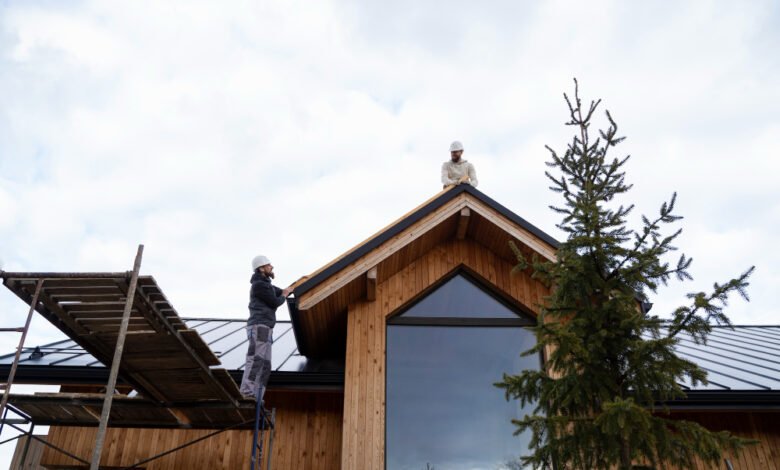Guide to Permits for Home Additions in Plano.
Additions to your home are a popular way to improve your living area, raise its value, and customize it to better suit your needs. In Plano, Texas, nevertheless,

Home additions are a popular way to enhance your living space, increase the value of your property, and tailor your home to better meet your needs. However, in Plano, Texas, as in many cities, adding new rooms, expanding your kitchen, or building a new deck requires proper permits and adherence to local building codes. This comprehensive guide will walk you through the steps and considerations for securing the necessary permits for home additions in Plano, ensuring your project is compliant, safe, and stress-free.
Understanding Why Permits Are Necessary
The Purpose of Permits
Permits are essential for ensuring that any construction or modification to your home complies with local building codes and regulations. These codes are in place to protect homeowners, their families, and the broader community from potential safety hazards. In Plano, the city’s Building Inspections Department oversees the permitting process for home additions, ensuring that all work is done to standard.
Consequences of Not Obtaining Permits
Skipping the permitting process can lead to serious consequences, including fines, forced removal of the addition, and difficulties when selling your home. Additionally, if unpermitted work results in damage or injury, your insurance may not cover the costs. Therefore, it’s crucial to follow the correct procedure from the start.
Types of Home Additions Requiring Permits in Plano
Common Home Additions
In Plano, several types of home additions typically require permits. These include:
- Room Additions: Expanding your home by adding new bedrooms, bathrooms, or living spaces.
- Kitchen Expansions: Enlarging your kitchen or making significant structural changes.
- Garage Conversions: Turning your garage into a livable space.
- Decks and Patios: Building new outdoor structures.
- Swimming Pools: Adding a pool to your property.
- Accessory Structures: Constructing sheds, gazebos, or other outbuildings.
Determining Whether Your Project Needs a Permit
While many projects will require a permit, smaller modifications may not. For example, simple repairs, cosmetic upgrades, or replacing existing fixtures typically do not need approval. It’s always wise to check with the City of Plano’s Building Inspections Department to confirm whether your specific project requires a permit.
Steps to Obtain a Permit for a Home Addition in Plano
Step 1: Initial Planning
Before you can apply for a permit, you need to have a clear plan for your home additions. This includes:
- Design and Blueprints: Work with an architect or designer to create detailed plans.
- Budget and Timeline: Establish a budget and timeline for your project.
- Research Zoning Laws: Ensure your project complies with local zoning regulations, such as setback requirements and height restrictions.
Step 2: Submit Permit Application
Once your plans are finalized, you can submit your permit application to the City of Plano’s Building Inspections Department. The application typically requires:
- Detailed plans and specifications.
- Information about the contractors who will be performing the work.
- A completed permit application form.
Step 3: Plan Review
After submission, the city will review your plans to ensure they meet local building codes and zoning laws. This process can take anywhere from a few days to several weeks, depending on the complexity of your project. During this time, city officials may request additional information or revisions to your plans.
Step 4: Permit Approval and Payment
Once your plans are approved, you will be notified, and you’ll need to pay the required permit fees. The fee structure in Plano varies depending on the size and scope of the project. You can find detailed information on the City of Plano’s website or by contacting the Building Inspections Department directly.
Step 5: Inspections During Construction
During construction, the city will require periodic inspections to ensure that the work is being completed according to the approved plans and local building codes. Common inspections include foundation, framing, plumbing, electrical, and final inspections. It is important to schedule these inspections promptly to avoid delays in your project.
Step 6: Final Approval and Certificate of Completion
Once construction is finished and all inspections have been completed, the city will issue a Certificate of Completion. This document is essential for confirming that your home additions complies with all relevant codes and regulations. You’ll need this certificate for future real estate transactions or insurance purposes.
Key Regulations and Codes to Know in Plano
Zoning and Setback Requirements
Plano has specific zoning laws that dictate where you can build on your property and how large your additions can be. For instance, there are setback requirements that determine how far your additions must be from property lines. Violating these regulations can result in delays or even denial of your permit.
Energy Efficiency Standards
Plano, like many cities, has energy efficiency standards for new constructions and additions. These standards aim to reduce energy consumption and environmental impact. You may need to incorporate energy-efficient windows, insulation, and HVAC systems into your plans to meet these requirements.
Historic Districts and Special Areas
If your home is located in one of Plano’s historic districts or special zoning areas, there may be additional regulations or design guidelines you need to follow. These areas often have stricter controls to preserve the aesthetic and historical significance of the neighborhood.
Hiring Licensed Contractors for Your Project
The Importance of Using Licensed Professionals
Hiring a licensed contractor is critical when making home additions in Plano. Licensed professionals are familiar with local codes, have proven expertise, and are required to carry insurance. This not only ensures that your project is up to standard but also protects you from liability in case something goes wrong during construction.
How to Find Reputable Contractors in Plano
You can find licensed contractors through referrals, online reviews, or by checking with professional associations like the Greater Dallas Builders Association. Always verify their licensing status through the Texas Department of Licensing and Regulation and ask for proof of insurance before hiring.
Permit Costs and Timeline Expectations
Understanding Permit Fees
Permit fees for home additions in Plano are based on the scope and size of the project. Generally, larger, more complex projects will incur higher fees. Additionally, there may be fees for plan reviews, inspections, and any necessary revisions.
How Long Does It Take to Get a Permit?
The timeline for obtaining a permit can vary depending on the complexity of the project and the current workload of the city’s Building Inspections Department. On average, you can expect the process to take anywhere from a few weeks to a couple of months. It’s crucial to factor this into your project timeline to avoid unexpected delays.
Dealing with Permit Denials and Appeals
Common Reasons for Permit Denial
Permits can be denied for various reasons, including incomplete applications, non-compliance with zoning laws, or safety concerns. If your permit is denied, the city will explain, allowing you to address the issues and resubmit your application.
The Appeal Process
If you believe your permit was unjustly denied, you can appeal the decision. The appeal process involves submitting additional documentation or arguing your case before a city review board. It’s often helpful to consult with a legal professional or a knowledgeable contractor when navigating this process.
Conclusion
Adding on to your home is an exciting venture, but it comes with responsibilities. Ensuring that you have the right permits not only safeguards your investment but also protects your family’s safety and helps avoid legal and financial troubles down the road. By following the guidelines set by the City of Plano and working with qualified professionals, you can achieve a successful home additions that enhances your living space for years to come.


